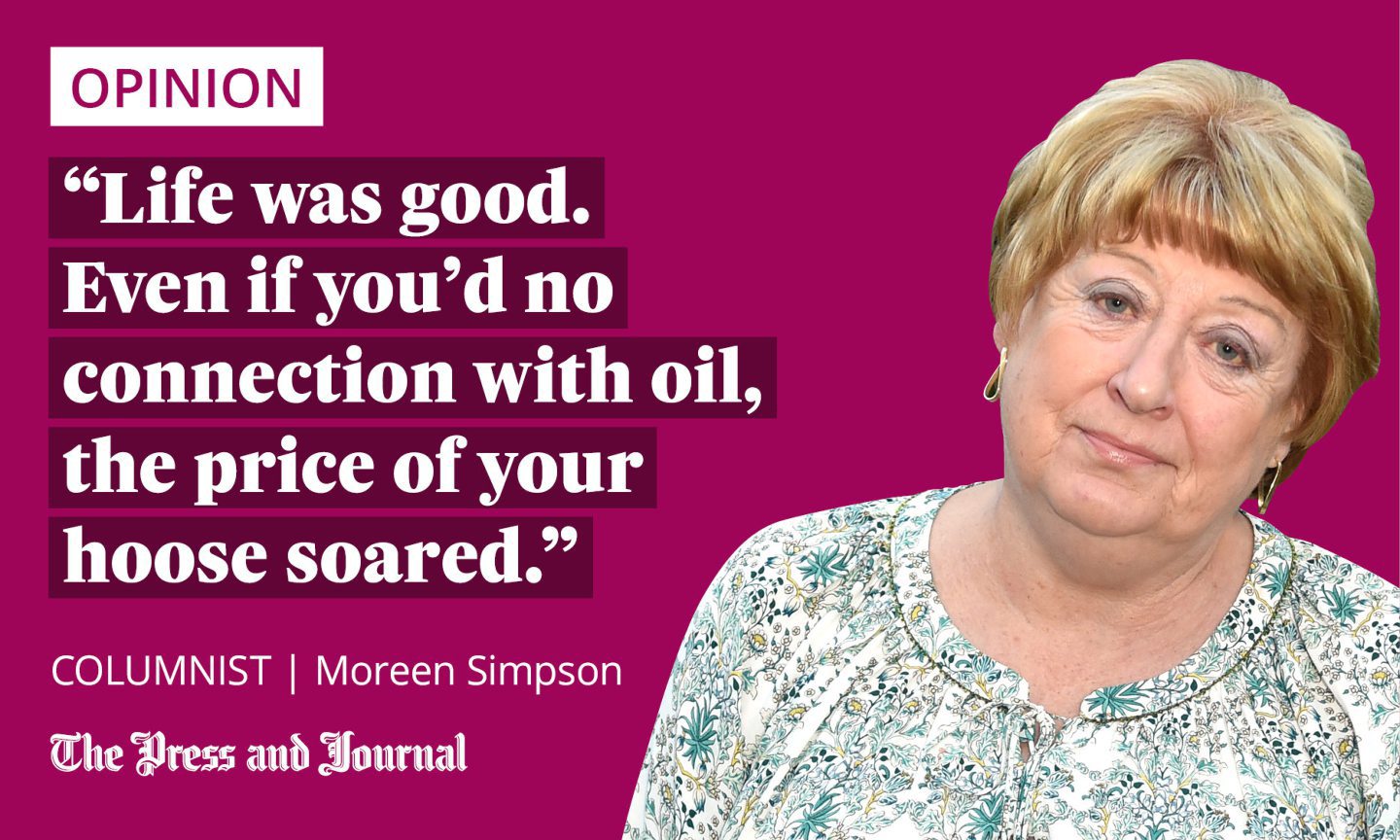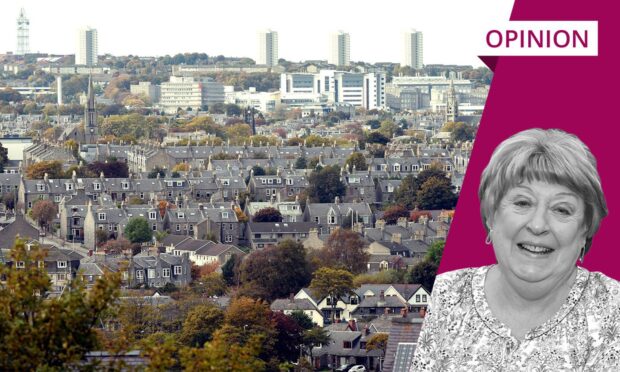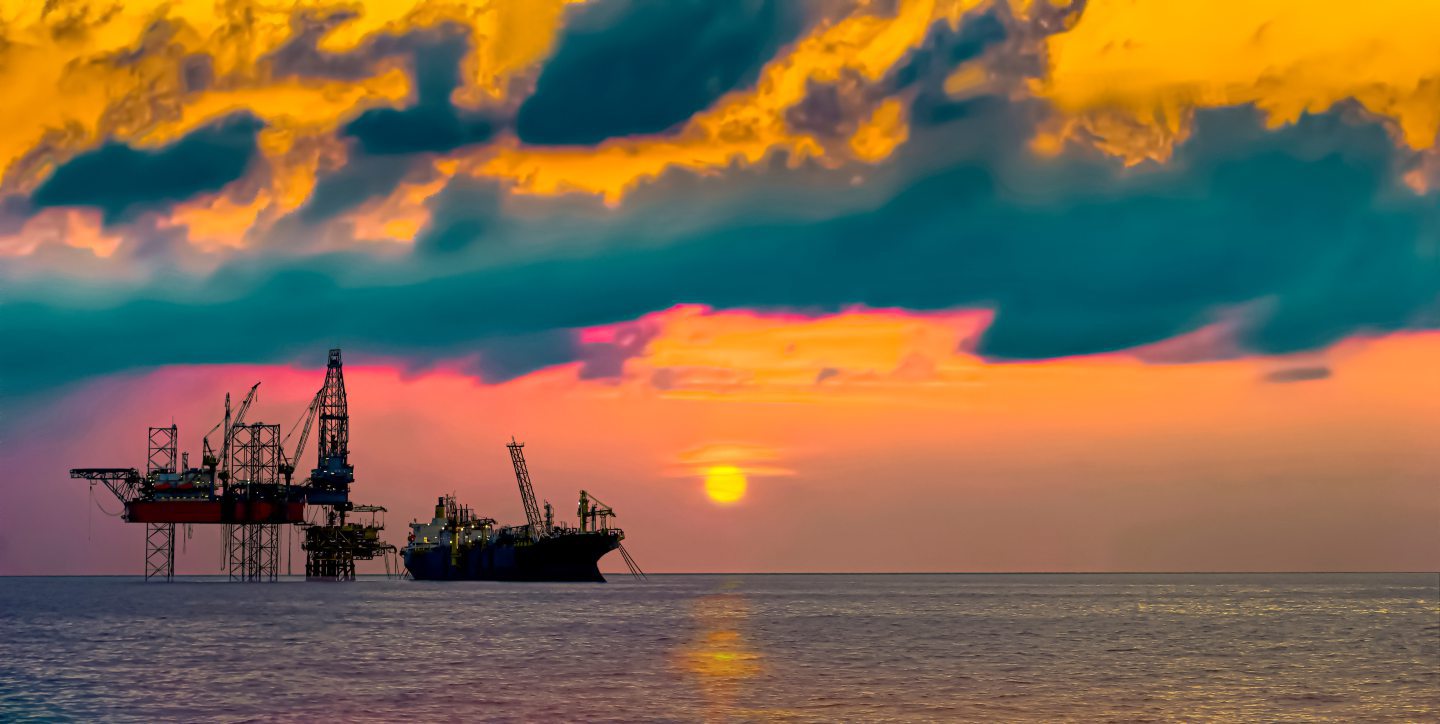It’s about a decade since one of the most traumatic periods in the recent past of the north-east: the time the oil riches started ebbing away.
Just as the discovery of black gold had impacted on the lives of every person in the area, so the crash hit virtually all of us in some way – pretty catastrophically for many thousands.
The beginning of the 1970s was our black-golden age, when the wee region oot on a limb at the top of the UK transformed almost overnight into a prospectors’ paradise. Oil companies piled in to exploit our newly discovered North Sea treasure, and we became known as the oil capital of Europe. (Far ye still couldnae get a taxi at the airport. And the only flights were to London and Clatt.)
Fa’ minds loadsa stories on Grumpian claiming Union Street was hoochin’ wie funcy Cadillacs and Stetson-wearin’ oil execs? Niver sa’ one.
But, yes, hopeful quines gathered at some of the packed-oot hotels and bars – like The Treetops and Mr G’s – in the hopes o’ “trappin” a rich Yank. If I hidnae been married…
In fact, one pal of mine did just that: lassooed a Texan, became a member of the International Wives Petroleum Club – fit a glam lot – like The Real Wives of Bieldside and Milltimber. Eventually whisked off to a seven-bed mansion in the plooterin’ heat of Houston, she still comes back regularly for a coollie-doon. Nae bad for a lass fae Esslemont Avenue.
Meanwhile, the menfolk – skilled or not – were being hoovered up into the new industry with swoon-worthy wages and offshore jobs. Life was good. Even if you’d no connection with oil, the price of your hoose soared to ludicrous London levels.

However, our fossil-fuel harvest of the sea seemed to disappear as fast as it arrived. In 2014, the price of a barrel of crude plunged from $100 to $50 because of rising supplies from the Middle East and a global drop in demand.
Almost immediately, smaller companies started pulling out, creating a wave of redundancies. Exploration of new fields slowed down.
Posh, West End streets sprouted a forest of “for sale” signs, as top bosses moved back to base in other parts of the world. Further down the production line, rig crews had to sell their precious family homes as they became jobless. There would have been no need for Uber in those days, as the taxi-driver market was flooded with ex-oil workers.
Inevitably, the property market slumped. Either homes didn’t sell, or prices were at rock bottom. One of my neighbours, who bought in 2013 for £400,500, sold in 2015 for a gutting £280,000.
Quite apart from the offshore industry, I doubt whether the north-east has ever fully recovered from the crash. Businesses, hotels, restaurants, bars have never boomed so much again.
Now, we’re at the forefront of a political crisis, as parties decide whether to continue exploring for new fields or piling investments into renewables. At least we’ve got the wide-open spaces and wild North Sea for wind farms and wave turbines.
And, surely, if Labour wins the general election, it will headquarter its promised, publicly-owned GB Energy company in Aberdeen?
Moreen Simpson is a former assistant editor of the Evening Express and The Press and Journal, and started her journalism career in 1970


Conversation